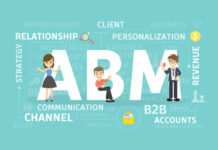Advancing your career will inevitably involve interviews, even if this is within the company that you already work for. Making sure that you have prepared for the interview process will give you the best possible chance of being successful. Every day Ciphr assists customers with internal interview process best practice, recording and reporting. Over time we have built up expert knowledge of what’s involved in recruiting internally.
Prepare
Firstly, never assume that because you already work within the business, you don’t need to prepare a case for why you’re the right person for the job. You should make the same effort and preparation for an internal interview as you would if you were applying for a role with another company.
You should research the role itself, the department and those who work within it, as well as the people carrying out the interview. The more you know, the better. Preparing thoroughly also proves that you have put the same effort into the interview as external applicants have.
Before word gets out and your manager learns through word of mouth, let your current manager know that you’re applying for an internal vacancy. Clearly explain to them why you’re applying for the role and ask for their support. If they’re a good manager, they will happily support you and help you to progress your career.
Never assume
It’s a huge mistake to assume that you’re the best person for the role, just because you already work for the business. External applicants are an unknown in terms of their abilities, experience and qualifications, so it’s a huge error of judgement to think that you don’t have to work just as hard as them to secure the job.
Preparation for the role is still a priority, even though those interviewing you may well have known you for some time. You should still be expected to bring details of your strengths, experience, qualifications, etc. with you to the interview.
Know your traits
Depending on your current role and how you’re perceived within the company, you may have to work on changing the opinion of some individuals before the interview is held. If you’re perceived as having some traits that may affect your chances, you’ll have to alter whatever it is that projects this perception. Self improvement is not only good for you in the long term, but also great as a discussion point during the interview, allowing you talk about how you can take advice and criticism on board, and act upon it in a positive way.
It may well be that you’ve had previous problems on your career path; these will probably come up during the interview and you should be prepared to answer them in a positive way.
Don’t go casual
Many companies now operate a casual dress policy for staff who are not client-facing. If this is the case, then don’t assume this dress code is suitable for the interview environment. Familiarity can catch you out and you need to treat the interview as if it were external. Suit up.
The same can be advised for those people interviewing you. It is likely that you know the people conducting the interview, and, depending on your length of service, you could be good friends. Make sure that everyone is comfortable with the level of detail expected in the interview and how it will be conducted. It might be that the interview is as awkward for those conducting it as it is for you, making sure that you’re all happy with the process will help to make the interview go smoothly.
At the end of the interview make sure you ask what the process will be with regards to follow up meetings, notification of progress, etc. Thanking those involved for their time is a nice way to lead into this question and shows forward-thinking and enthusiasm.









